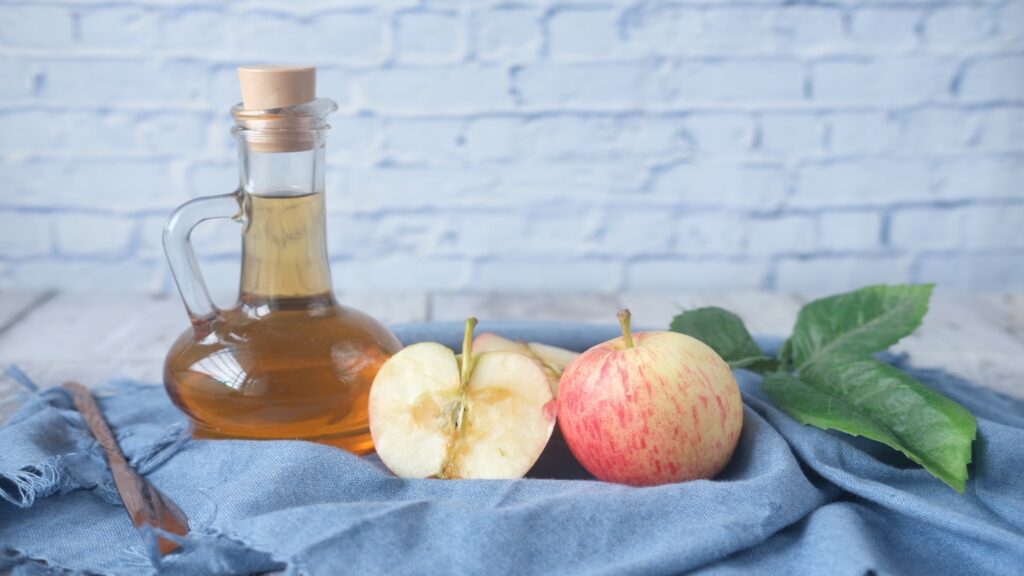
The saying goes that an apple a day keeps the doctor away but now scientists at the University of Glasgow are looking into whether a pint of cider could have the same effect. Researchers have discovered that English cider apples have high levels of phenolics — antioxidants linked to protection against stroke, heart disease and cancer — and are working with volunteers to see whether these health benefits could be passed onto cider drinkers.
In the next few weeks 12 volunteers will each drink a pint of cider, while avoiding all other dietary sources of antioxidants, to give the research team a unique insight into how phenolics are absorbed and metabolised by humans. The research is part of a project funded by the Biotechnology and Biological Sciences Research Council (BBSRC) and the National Association of Cider Makers.
Serena Marks, who is leading the study, explains: “Previous research suggests there may be an association between phenolics and protection against some serious diseases, so we are trying to find out how we get phenolics from our diet. We know that apples are high in phenolics and our research shows that cider apples have a higher phenolic content than dessert apples.”
The cider industry has long been interested in phenolics, because these compounds play an important role in the taste and colour of cider, but Marks hopes her research will show that phenolic levels also have a beneficial health role.
So far Marks and her colleagues have looked at the phenolic levels of 19 varieties of English cider apple, 35 varieties of cider and one variety of dessert apple to analyse how and why levels differ and to understand the effects that the cider making process has on the final phenolic content of cider.
They have found that some varieties of apple and some types of cider have higher levels of phenolics than others. Factors that may affect phenolic concentration include the age of the fruit, light exposure, growing region and storage conditions.
Now the scientists have a better understanding of the phenolic content of different apples and cider, the next stage of the research is to analyse how humans absorb these phenolics. To do this, 12 volunteers will drink a 500 ml dose of cider in a controlled environment and samples of their blood and urine will be taken to measure the quantity of phenolics absorbed into the body.
Marks hopes that findings from her work may allow the production methods of cider to be adapted so that the phenolic levels remain high, even after fermentation.
“The more information we can get about phenolics in cider and what happens to them in the body, the more chance we have of positively influencing the phenolic content of English cider, for example, helping manufacturers chose varieties of cider apple which have naturally higher levels of phenolics. This could mean that drinking a glass of cider is not only enjoyable, but a great way for people to naturally increase the amount of phenolics in their diet.”
Professor Nigel Brown, Director of Science and Technology at BBSRC, commented: “The UK is a major producer of cider and the popularity of the drink is increasing. This exciting research shows how scientists and industry can work together to improve manufacturing techniques, not just for economic gain, but as in this instance, to bring about potential health benefits for the public too. The relationship between diet and health is a major strategic interest of the BBSRC.”
Marks is halfway through her three year study which is funded by an Industrial Co-operative Awards in Science and Engineering (CASE) studentship funded by BBSRC and the National Association of Cider Makers.
Serena Marks is funded by a BBSRC Industrial CASE studentship award from the National Association of Cider Makers. BBSRC Industrial CASE studentships are awarded to UK-based industrial companies who wish to support postgraduate research in areas relevant to their operations.
UK cider makers invest heavily in cider apple orchards and use about 45 per cent of all apples grown in the UK.
The fermentation of apple juice to produce an alcoholic beverage dates back at least 2000 years and is recorded as a common drink at the time of the Roman invasion of England in 55 BC. Significant commercial production began in the UK in the late 19th Century.
 Organic tomato juice contains more beneficial phenolic components than juice from conventionally grown crops
Organic tomato juice contains more beneficial phenolic components than juice from conventionally grown crops Compound in fruit peels halts damage and spurs neuronal repair in multiple sclerosis
Compound in fruit peels halts damage and spurs neuronal repair in multiple sclerosis Friendly bacteria love the humble apple
Friendly bacteria love the humble apple Your iPhone 12 and its accessories can interfere with pacemaker behavior
Your iPhone 12 and its accessories can interfere with pacemaker behavior